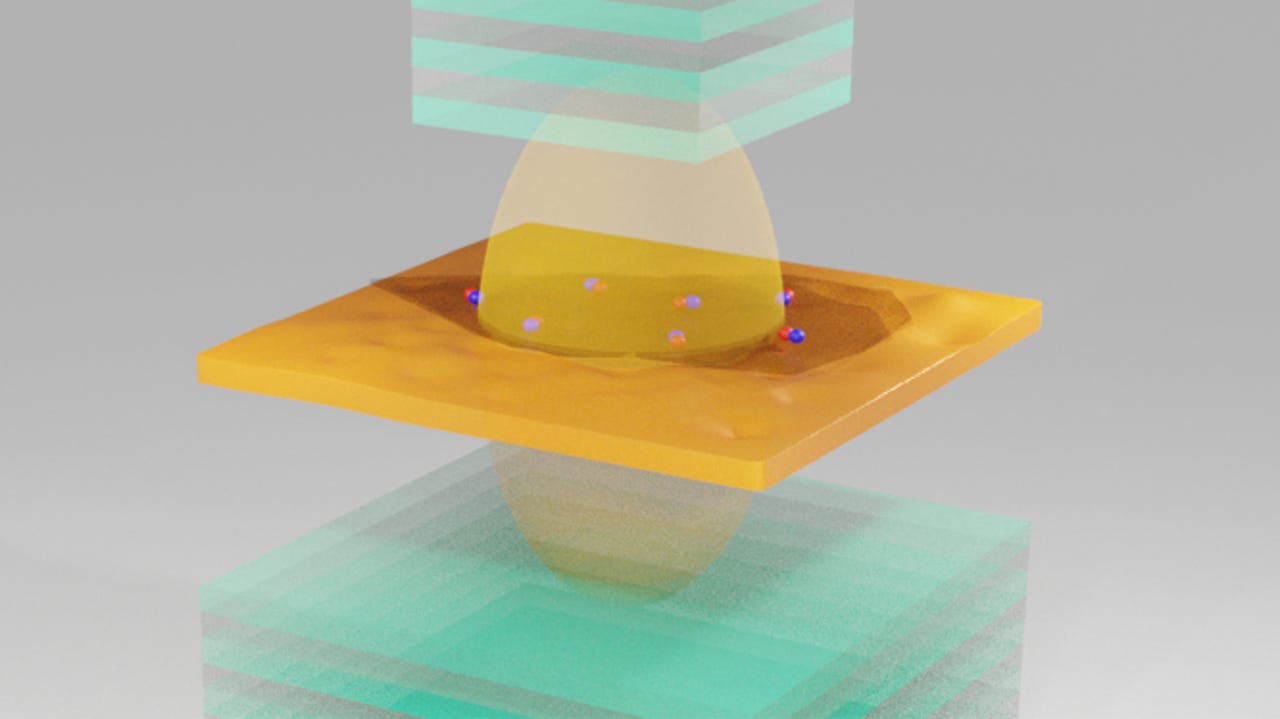
































A model of the new semiconductor.
Image: Australia National UniversityAustralian National University (ANU) researchers have developed a system to transport data using atomically thin semiconductors.
100,000 times thinner than a sheet of paper, the semiconductor is "extremely energy efficient" due to the researchers claiming it is not "giving off any heat", which results in no energy being wasted.
According to the researchers, the semiconductor is the first to successfully demonstrate this level of efficient transportation of information carriers -- particles that transport data in computers.
The project's research lead, ANU Research School of Physics PhD scholar Matthias Wurdack, said the technology could potentially pave the way for sustainable future growth in computing by reducing wasted energy consumption.
"Computers already use around 10% of all globally available electricity, a number which comes with a massive financial and environmental cost, and is predicted to double every 10 years due to the increasing demand for computing," Wurdack said.
"Since producing, storing, and supplying energy always comes with a cost, including air pollution and climate change as a result of burning fossil fuels, it is extremely important we reduce our electricity usage for a more sustainable future."
The researchers will now move on to the next phase of the project, which consists of incorporating the technology into a transistor, ANU said.
Globally, there is a semiconductor shortage that has affected various industries, from automotive to smartphones. Earlier on Monday, Jio and Google announced the release date for their jointly-developed JioPhone Next would be pushed back to November partly due to the semiconductor shortage.
"This additional time will also help mitigate the current industry-wide, global semiconductor shortages," the companies said.
Meanwhile, automotive manufacturers have struggled to produce cars since the pandemic started due to the shortages. Ford, for example, lost around 700,00 vehicles that were planned for production in the second quarter of 2021, while General Motors has stated that losses caused by the lack of semiconductors could cost up to$2 billion in profit.
At the same time, the university has also launched a new research centre focused on designing tech policy that is "relevant, robust, and right".
The Tech Policy Design Centre will work with business, government, civil society, policymakers, and academia to co-design tech policy, ANU said.
The tech policy will be based on four areas: People, power, democracy, and data.
Providing more detail, ANU said the centre would research who is the owner of data and has permission to use it; the increasing influence and power of tech giants; online rights and safety; and the impact of misinformation, disinformation, and foreign interference on democracy.
The new centre will be led by Johanna Weaver.
Weaver was most recently Australia's chief cyber negotiator at the United Nations, ANU said. Prior to that, she was a lawyer and Australian diplomat who held senior positions in cyber affairs at the Department of Foreign Affairs and Trade.
"The centre will reimagine how policy can be used in a positive way to shape technology," ANU Chancellor Julie Bishop said.
"This will help position our nation to harness the full potential of digital technologies while responsibly mitigating against future harms."
 Tags quentes :
Inovação
Tags quentes :
Inovação